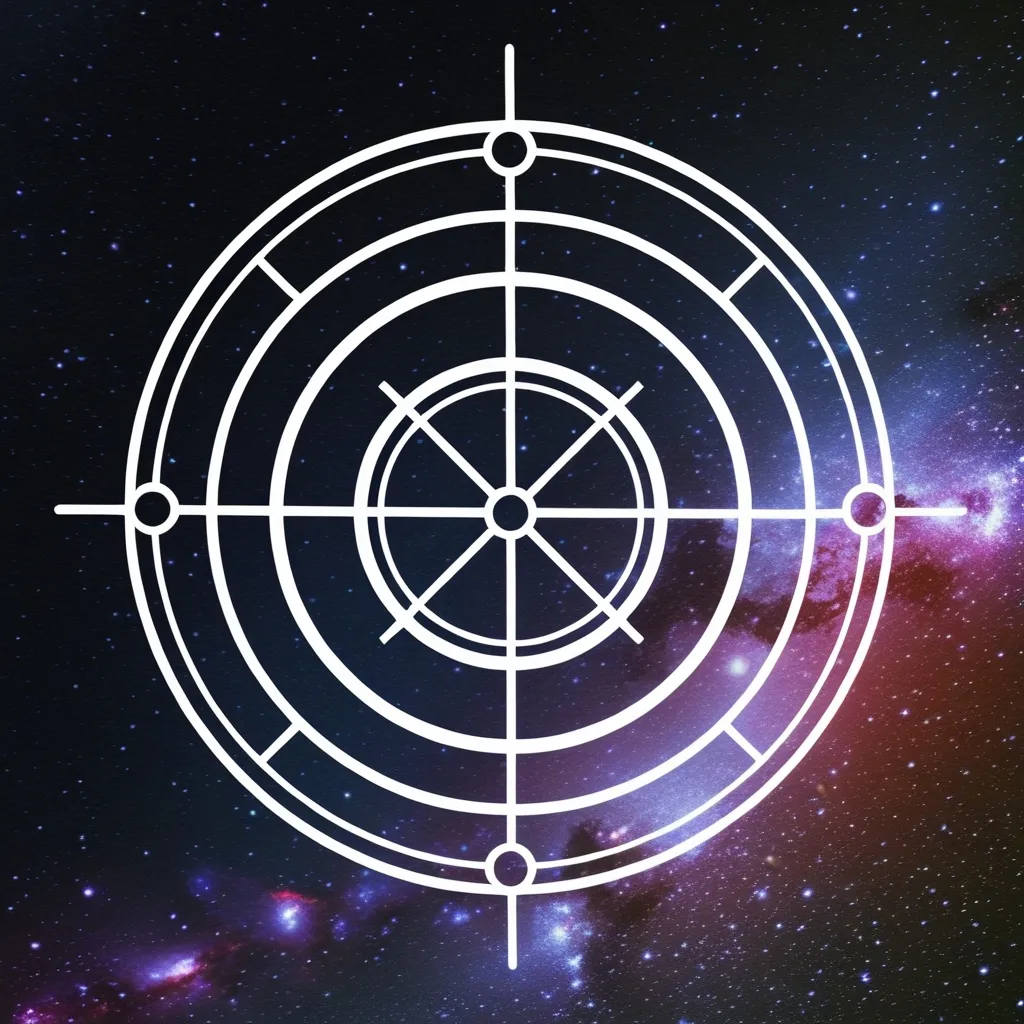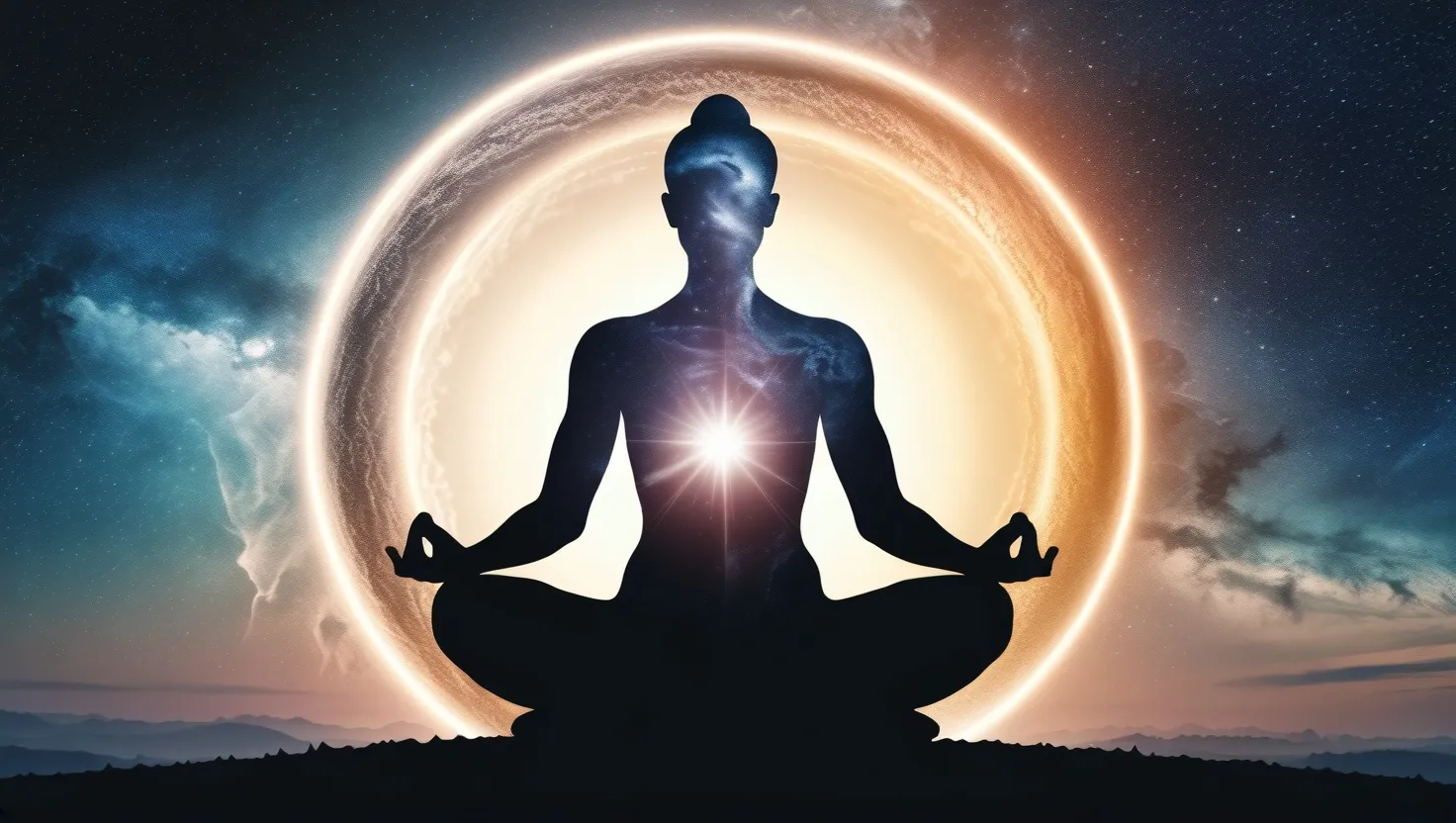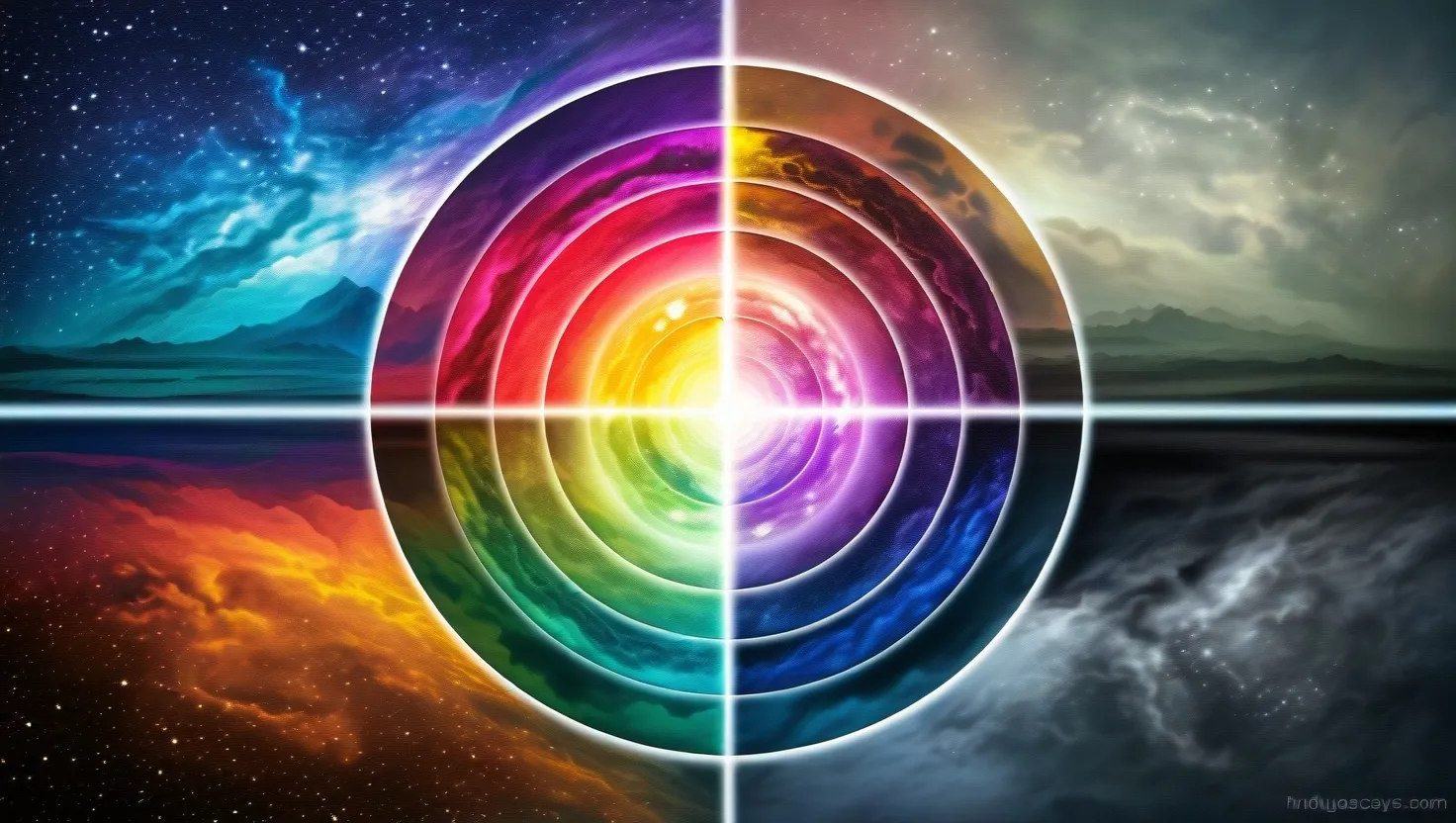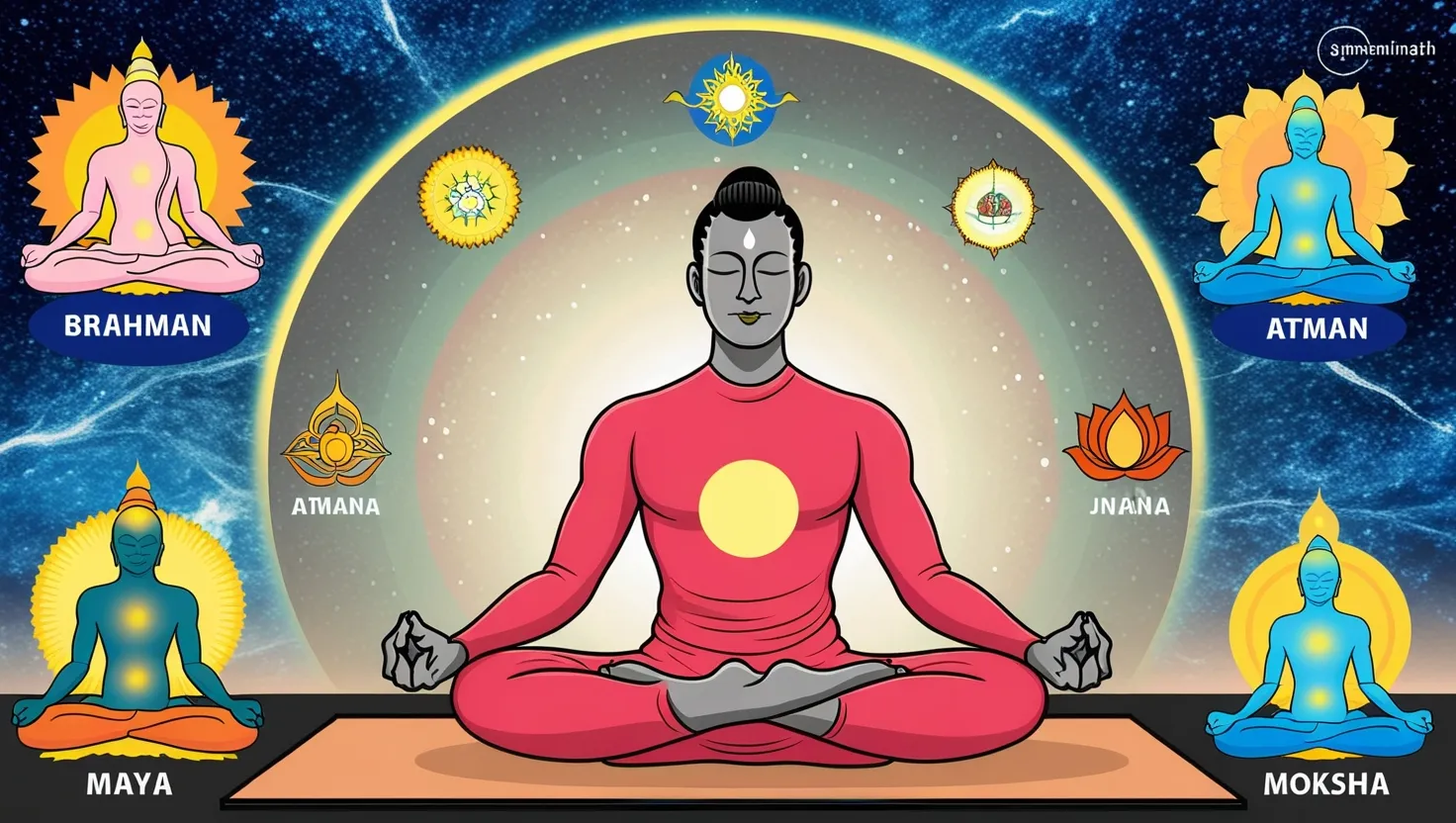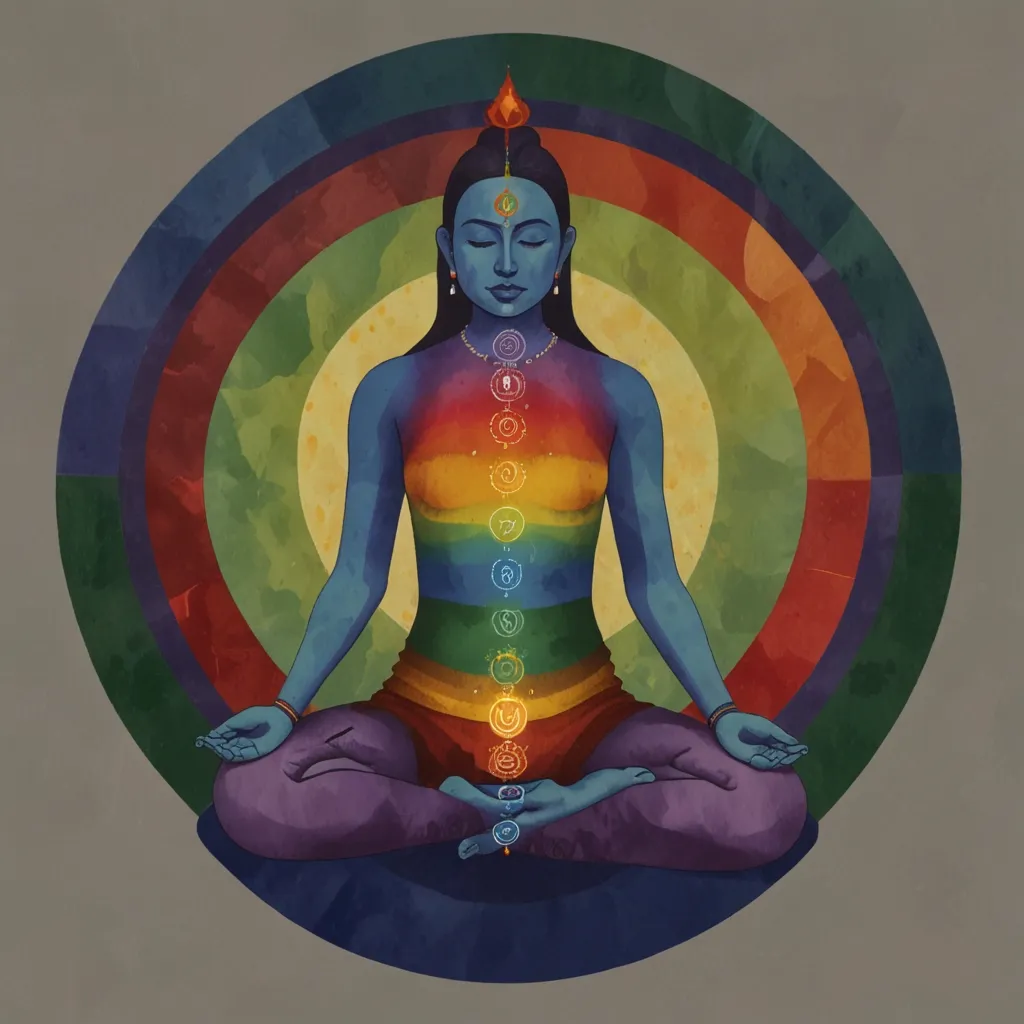Karma: The Cosmic Law of Cause and Effect
Ever wondered why some people seem to have all the luck while others can’t catch a break? Enter karma, the cosmic scorekeeper that’s been around way longer than your favorite video game. It’s like the universe’s way of keeping tabs on our actions, thoughts, and intentions. But hold up, it’s not just about good vibes and bad juju.
Karma’s got roots deep in Hinduism, but it’s not some ancient relic gathering dust in a temple. Nah, it’s a living, breathing concept that’s still shaping lives today. Think of it as the spiritual version of Newton’s third law – for every action, there’s an equal and opposite reaction. Only in this case, it’s not just about physics, it’s about the choices we make and the consequences that follow.
Now, don’t go thinking karma’s just a simple tit-for-tat system. It’s way more complex than that. It’s like a cosmic garden where every thought, word, and deed is a seed you’re planting. Some seeds might sprout right away, while others might take lifetimes to bloom. Yeah, you heard that right – lifetimes. In Hindu belief, karma’s not just about this life, but all the lives you’ve lived and will live.
Let’s break it down a bit. There are different types of karma at play in our lives. First up, we’ve got prarabdha karma. This is the stuff you’re dealing with right now, the consequences of past actions that are shaping your current life. Then there’s sanchita karma, which is like your karmic savings account – all the karma you’ve accumulated over your past lives. And finally, there’s agami or kriyamana karma, which is the new karma you’re creating with your current actions.
It’s like having three different bank accounts. One’s your checking account (prarabdha), where you’re constantly making deposits and withdrawals. Another’s your long-term savings (sanchita), built up over time. And the last one’s your investment account (agami), where you’re putting in for future returns.
But here’s the kicker – karma isn’t just about what you do, it’s also about why you do it. Your intentions matter just as much as your actions. So if you help an old lady cross the street just to look good, sorry bud, but that’s not gonna score you the same karmic points as if you did it out of genuine kindness.
Now, you might be thinking, “Great, so I’m stuck with whatever karma I’ve racked up?” Not exactly. While you can’t erase your past karma, you can start creating better karma right now. It’s never too late to start planting those good seeds.
Karma isn’t just an individual thing either. There’s such a thing as collective karma. Think about it like this – your personal actions are like drops in a vast ocean. Each drop matters, but together they create waves that affect everyone. So when a whole community or nation acts in a certain way, it creates a collective karma that impacts everyone involved.
Here’s where it gets really interesting. Karma isn’t just some cosmic punishment system. It’s more like a teacher, helping us learn and grow. Every experience, good or bad, is an opportunity to learn and evolve. It’s the universe’s way of saying, “Hey, pay attention! There’s a lesson here!”
But let’s be real, sometimes karma can feel pretty harsh. We’ve all had those moments where we think, “What did I do to deserve this?” Well, according to the concept of karma, the answer is… something. Maybe not in this life, maybe not something you even remember, but something.
This is where karma can be a double-edged sword. On one hand, it can provide comfort. When bad things happen, it can be reassuring to think there’s a reason, even if we don’t know what it is. On the other hand, it can lead to victim-blaming or a sense of helplessness. That’s why it’s important to remember that karma isn’t about punishment, it’s about balance and learning.
One of the cool things about karma is how it motivates people to be better. If you know that your actions have consequences beyond just the immediate effects, you’re more likely to think twice before doing something shady. It’s like having a cosmic conscience keeping you in check.
But here’s a plot twist – being too focused on karma can actually be counterproductive. If you’re only doing good deeds to rack up karmic brownie points, you’re missing the point. The goal isn’t to manipulate the system, it’s to genuinely become a better person.
Let’s talk about how karma plays out in everyday life. Ever had a day where everything just seems to go right? You hit all the green lights, find a $20 bill on the street, and get a surprise compliment from your boss? That could be good karma coming back to you. On the flip side, those days where you spill coffee on your shirt, get stuck in traffic, and step in gum? Yeah, that might be karma too.
But remember, karma isn’t just about big, dramatic events. It’s in the little things too. That time you held the door open for someone? Karma. When you chose not to honk at the slow driver in front of you? Also karma. It’s in every choice we make, every single day.
Now, let’s address the elephant in the room – can you game the karma system? Sorry, folks, but it doesn’t work that way. You can’t just do a bunch of good deeds to cancel out the bad ones. Karma isn’t a math equation where good and bad cancel each other out. Each action has its own consequence. So while doing good is always, well, good, it doesn’t erase the effects of past negative actions.
Here’s another mind-bender for you – karma doesn’t stop when you die. According to Hindu belief, your karma determines your next life. If you’ve accumulated a lot of good karma, you might be reborn into better circumstances. If not, well… let’s just say you might want to work on that karma thing.
But don’t panic! The goal isn’t to achieve perfect karma (is there even such a thing?). It’s about progress, about becoming more aware of our actions and their consequences. It’s about taking responsibility for our choices and understanding that we have the power to shape our own destiny.
So, how can we apply this karmic wisdom to our daily lives? Start small. Be mindful of your thoughts and actions. Treat others with kindness and respect. Not because you’re trying to rack up karmic points, but because it’s the right thing to do. Remember, karma isn’t about keeping score, it’s about personal growth and becoming the best version of yourself.
And here’s a pro tip – don’t get too hung up on the results. Sometimes, despite our best intentions, things don’t work out the way we want. That’s okay. The important thing is the intention and the effort. Keep planting those good seeds, even if you don’t see the fruits right away.
Karma teaches us patience too. In our instant-gratification world, it’s easy to expect immediate results. But karma operates on its own timeline. Sometimes the effects of our actions take years, or even lifetimes, to manifest. It’s a reminder to play the long game, to think beyond just immediate rewards.
At the end of the day, believing in karma is about taking responsibility for our lives. It’s about understanding that our choices matter, that we’re not just passive players in the game of life, but active creators of our own destiny. It’s empowering, when you think about it. You’re not at the mercy of fate – you’re the architect of your own future.
So next time you’re faced with a choice, big or small, remember the law of karma. Not as a threat or a promise of reward, but as a gentle reminder that every action ripples out into the world, creating effects we might not even be aware of. Choose wisely, act kindly, and trust that in the grand cosmic scheme of things, it all balances out in the end.
And hey, if nothing else, believing in karma might just make you a nicer person. And couldn’t the world use a few more of those?
